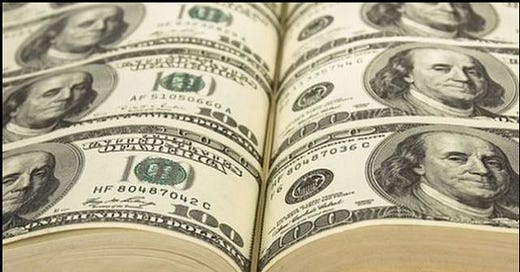How Much Do Writers Actually Earn?
It's that time of year when I receive my royalty statements...
This week I received my royalty statement for Somebody I Used to Know, the first book that Wendy Mitchell and I wrote together.
It was the first royalty statement that I have received since her death in February. Usually we’d be excited to see how much of our advance we had paid off, hoping that we have reached the stage where we earnt royalties – and usually being disappointed.
I would always cheer Wendy up when she was sad at how much we still had to pay off.
“Yes but perhaps by this time next year…” I would say, sounding awfully like Delboy talking to Rodney in Only Fools and Horses.
Except Wendy is not here anymore. Another first without her ticked off the list.
For those who don’t know, this is how a publishing deal works, you get paid an advance for your work and this is usually in four parts: the first quarter on signing of the contract; the second quarter on delivery and acceptance of the manuscript; the third on publication in hardback; and, the final part on publication in paperback.
This means that you get paid your advances over a period of often two or three years, and when that’s a large six-figure advance it is rather nice to get those decent chunks arriving in your bank (though, you still need to be earning another way, unless we’re talking about million pound advances), but if they’re not big advances, it’s more like a trickle, a couple of thousand pounds here and there over three years. Perhaps enough to treat yourself to a little holiday, or a new patio set, or in my case it just goes in the bank to help pay the bills each month.
The advance that Wendy and I received for Somebody I Used to Know was a six-figure one, which was very exciting at the time and we were very fortunate indeed, but we have to pay that advance back in sales before we start receiving royalties – something that not everyone realises.
And that’s what Wendy and I were always excited about getting down to, that day when our advance was paid off, although sadly she didn’t live to see it.
So how much do writers get paid every time one of their books sells?



